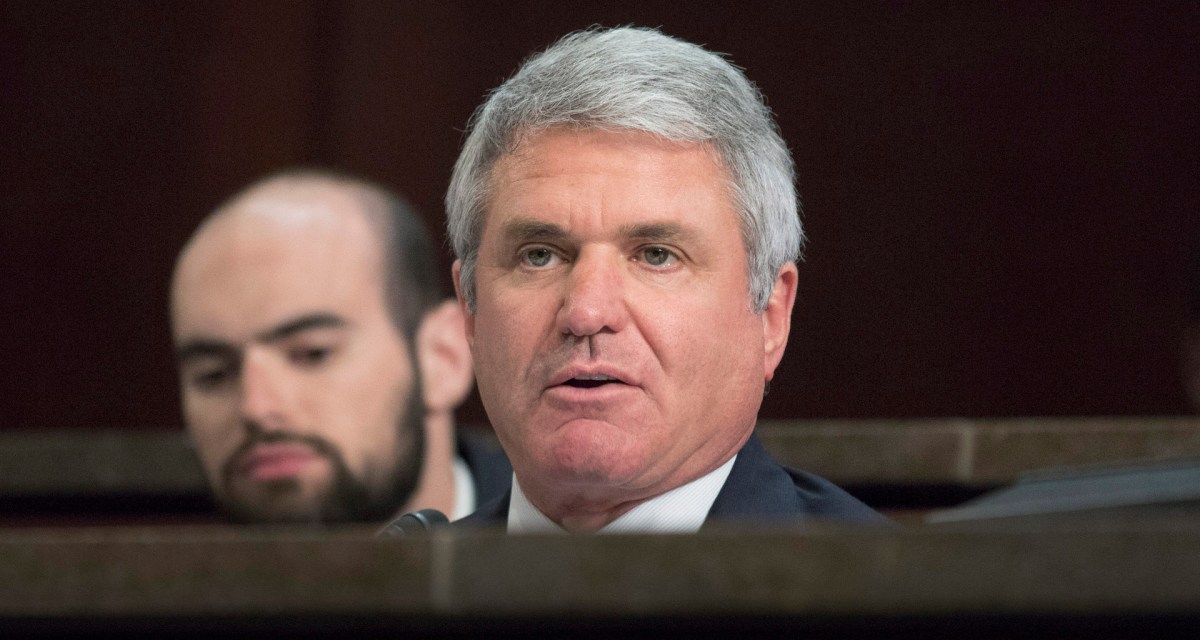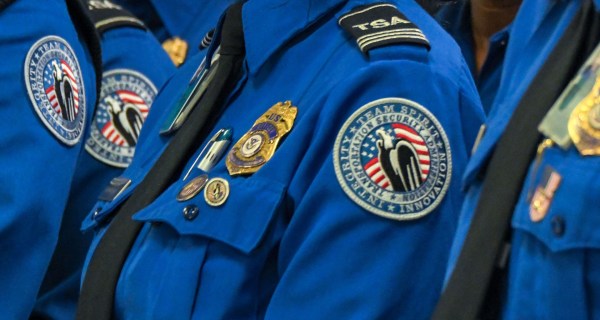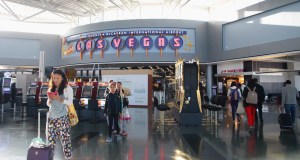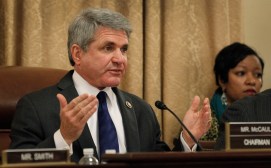Reduced request for airport scanners earns a broadside from Rep. McCaul

The top Republican on the House Homeland Security Committee took some shots Monday at the Office of Management and Budget over the White House’s funding proposal for airport screening technology.
Rep. Michael McCaul of Texas, who is in the final year of his tenure as committee chairman, blasted the White House’s decision to request $75 million in fiscal 2018 for 3-D scanning technology known as computed tomography, or CT, meant for more in-depth baggage screening. The Transportation Security Administration (TSA) originally sought $150 million for 300 of the machines, which McCaul said are essential to the nation’s aviation security, a frequent target for terrorist groups.
“I’ve seen these devices, they work. And if the request was cut in half by OMB to deploy 300 machines, that’s what the ask was; $150 million to do this,” McCaul said in a speech Monday at George Washington’s Center for Cyber and Homeland Security. “Now that’s a lot of money. But in Washington, when we talk about billions of dollars, $150 million to protect Americans on inbound flights from some of the most dangerous spots, last departure airports, in my judgment is worth every penny. And I’m not going to have that on my head.”
CT technology is currently operational in airports outside of the U.S. but has yet to be fully deployed in the nation’s airports, as the TSA — part of the Department of Homeland Security — continues to test the technology. McCaul has been a frequent advocate for the incorporation of CT technology in the nation’s 450 airports and said that TSA officials should be able to move faster to deploy it since it is available from American companies.
“They exist currently, it’s not some futuristic thing,” he said. “Working closely with the TSA administrator, I said, ‘I want to support your request. I know that OMB cut your request in half, but he’s putting the American people at risk.’”
McCaul’s views were echoed by Reps John Katko, R-N.Y., Will Hurd, R-Texas, and Mike Gallagher, R-Wis. Gallagher has advocated for legislation that increases greater information sharing between federal agencies and the Department of Defense, including biometric data of Islamic extremists returning home from the battlefield.
“It’s the U.S. military that’s collecting biometric and biographic data downrange in places like Iraq and Syria, how do we ensure that that information is adequately handed off to [the Department of Homeland Security],” Gallagher said during a panel discussion Monday after McCaul’s speech.
Gallagher sponsored the Counterterrorism Information Sharing Improvement Act, which the House passed last month, to give DHS and associated agencies access to biometric data collected from those associated with terrorist organizations. The bill is currently sitting in the Senate.
The group also discussed the importance of cybersecurity on the federal level with Hurd detailing his much-anticipated legislation for a “cyber reserves” program that would recruit private sector experts to assist the government for 20 days each annually on cyberdefense issues.
The plan involves leveraging federal funding to promote cybersecurity education that’s tied to a term of federal service, followed by rotational reserve service in government once the professionals head to the private sector.
“That improves cross-pollination of ideas and it gets through this point that the federal government is never going to be able to compete by salaries with the private sector,” Hurd said. “So, let’s train that workforce, go in and still be able to take advantage of it.”






